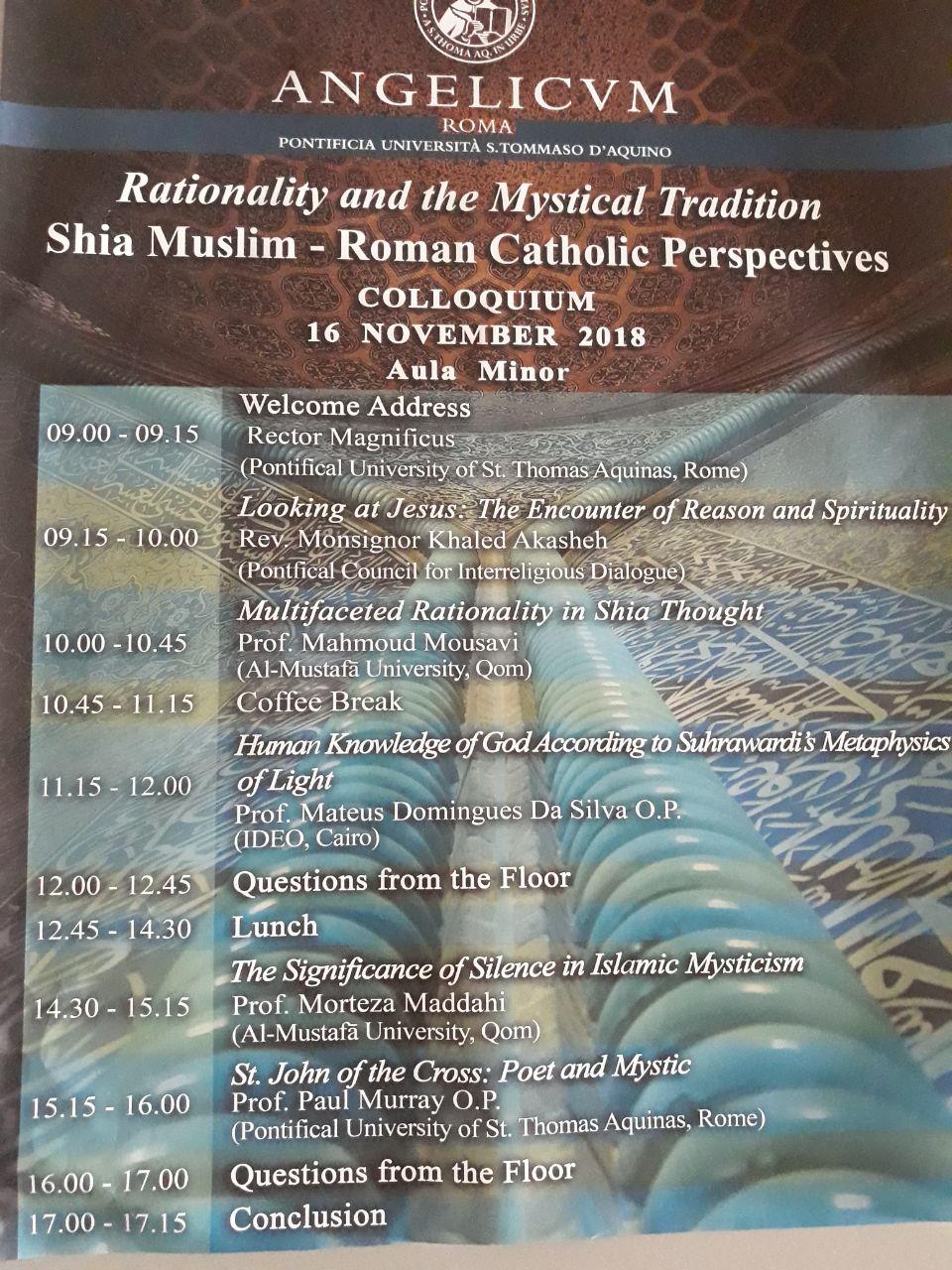On November 16, 2018 the Pontifical University of St Thomas Aquinas (Angelicum), in Rome will be hosting a colloquium on the subject Rationality and the Mystical Tradition: Shia Muslim – Roman Catholic Perspectives.
The event will take place in the Aula Minor. Speakers hailing from both religious denominations will be discussing the encounter between reasoned discourse and the quest for God as experienced by some major scholars and mystics belonging to both Shia Islam and Roman Catholicism. They will explore the approaches taken by them in their quest to achieve harmony between these two paths.
The topic itself is of particular interest to the Angelicum University given that it is named after St Thomas Aquinas who was among the foremost mediaeval scholars who engaged in dialogue with Islamic thought. It is also set within the context of what the Declaration of the Second Vatican Council Nostra Aetate states regarding relations between Catholics and Muslims. It appeals for “a sincere effort be made to achieve mutual understanding; for the benefit of all men, let them together persevere and promote peace, liberty, social justice, and moral values.” (NA, 3). Such an appeal was reiterated last year by Pope Francis during his meeting with a group of British Imams (5 May 2017) wherein he stated that listening to each other was essential for the common future of humanity as we walk together in our shared lives.
Important Dates
Colloquium Date: November 16, 2018
Venue: Pontificia Università San Tommaso d’Aquino – Angelicum, 1 Largo Angelicum, 00184 Roma
 Ijtihad Network Being Wise and Faithful Muslim in the Contemporary World
Ijtihad Network Being Wise and Faithful Muslim in the Contemporary World

